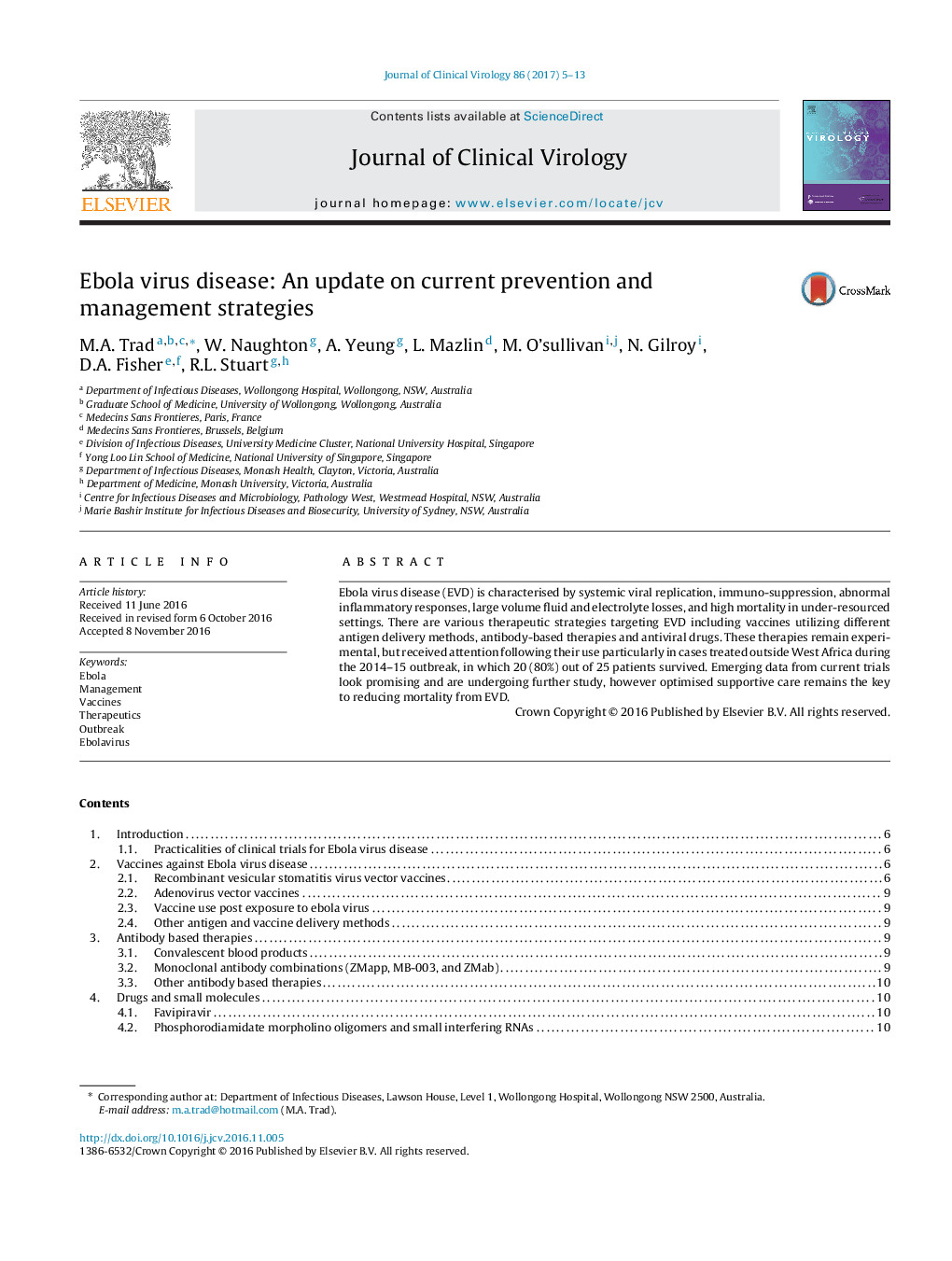| Article ID | Journal | Published Year | Pages | File Type |
|---|---|---|---|---|
| 5668018 | Journal of Clinical Virology | 2017 | 9 Pages |
â¢Management of EBOV infection must emphasize a holistic approach that includes symptomatic control and takes into consideration the psychosocial complexities of having the disease and domestic conditions.â¢International and local agencies setting up treatment centres must be willing to recruit patients into clinical trials, and have structures in place to manage the ethical and medico-legal requirements to facilitate their conduct.â¢Leadership in emergency research is currently lacking, and so are well-designed and practical clinical trials.â¢Conclusions about safety and effectiveness of Ebolavirus disease therapeutics cannot yet be made, but the use of oral therapies has potential especially early on in the disease and in settings were intravenous use of blood products and therapeutics is challenging.â¢Clinics to follow-up on the survivors to establish the natural history of EVD and its long-term sequelae are an opportunity for us to learn more about this disease.
Ebola virus disease (EVD) is characterised by systemic viral replication, immuno-suppression, abnormal inflammatory responses, large volume fluid and electrolyte losses, and high mortality in under-resourced settings. There are various therapeutic strategies targeting EVD including vaccines utilizing different antigen delivery methods, antibody-based therapies and antiviral drugs. These therapies remain experimental, but received attention following their use particularly in cases treated outside West Africa during the 2014-15 outbreak, in which 20 (80%) out of 25 patients survived. Emerging data from current trials look promising and are undergoing further study, however optimised supportive care remains the key to reducing mortality from EVD.
